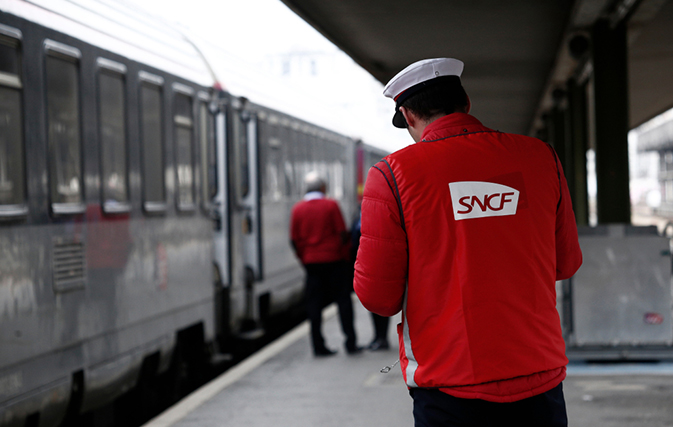PARIS — Flights in and out of France on carriers including Air France have been impacted by the French national strike action.
The strike started today, Dec. 5. In its wake the Eiffel Tower has shut down, France’s high-speed trains are not operating and several thousand people are protesting in Paris. The unions launched the open-ended, nationwide strikes over the government’s plan to overhaul the retirement system.
The big question is how long the strike will last. Transport Minister Elisabeth Borne said she expects the travel troubles to be just as bad Friday, and unions said they’ll maintain the Paris subway system strike at least through Monday.
The following update has been posted at airfrance.ca:
“Due to a national call for strike action in France on Thursday 5 December 2019, continued by French Air Traffic controllers from 5 to 7 December, the DGAC (French Civil Aviation Authority) has instructed airlines to reduce again their flight program to and from Paris CDG, Paris Orly, Lyon, Marseille, Toulouse and Bordeaux airports for 6 December 2019.”
Air France says its flight schedule for 6 December is up to date, and the airline expects to operate all long-haul flights, more than 90% of medium-haul flights and almost 70% of domestic flights.
“Disruptions are also possible for 7 December, and our flight program will be adjusted the day before, following DGAC recommendations.” Passengers can change their flight to an earlier or later date free of charge.
Meanwhile Paris authorities have barricaded the presidential palace and deployed 6,000 police as activists – many in yellow vests representing France’s year-old movement for economic justice – gathered in the capital.
Unions and their supporters fear that the changes to how and when workers can retire will threaten the hard-fought French way of life. President Emmanuel Macron himself is “calm and determined” to push it through, according to a top presidential official.
The Louvre Museum warned of strike disruptions, and subway stations across Paris shut their gates.
Unprepared tourists discovered historic train stations standing empty Thursday, with about nine out of 10 of high-speed TGV trains cancelled. Signs at Paris’ Orly Airport showed ‘cancelled’ notices, as the civil aviation authority announced 20% of flights were grounded.
Some travellers showed support for the striking workers, but others complained about being embroiled in someone else’s fight.
“I had no idea about the strike happening, and I was waiting for two hours in the airport for the train to arrive and it didn’t arrive,” said New Yorker Ian Crossen. “I feel a little bit frustrated. And I’ve spent a lot of money. I’ve spent money I didn’t need to, apparently.”
Vladimir Madeira, a Chilean tourist vacationing in Paris, said the strike has been “a nightmare.” He hadn’t heard about the protest until he arrived, and transport disruptions foiled his plans to travel directly to Zurich.
Beneath the closed Eiffel Tower, visitors from Canada, Thailand and Spain echoed those sentiments.
Bracing for possible violence along the route of the Paris march, police ordered all businesses, cafes and restaurants in the area to close. Authorities banned protests in the more sensitive neighbourhoods around the Champs-Elysees avenue, presidential palace, parliament and Notre Dame Cathedral.
Police carried out security checks of more than 6,000 people arriving for the protest and detained 65 even before it started. Embassies warned tourists to avoid the protest area.
With file from The Associated Press

